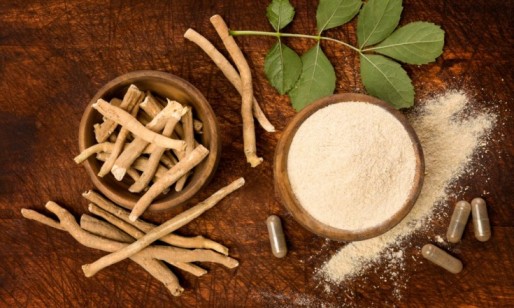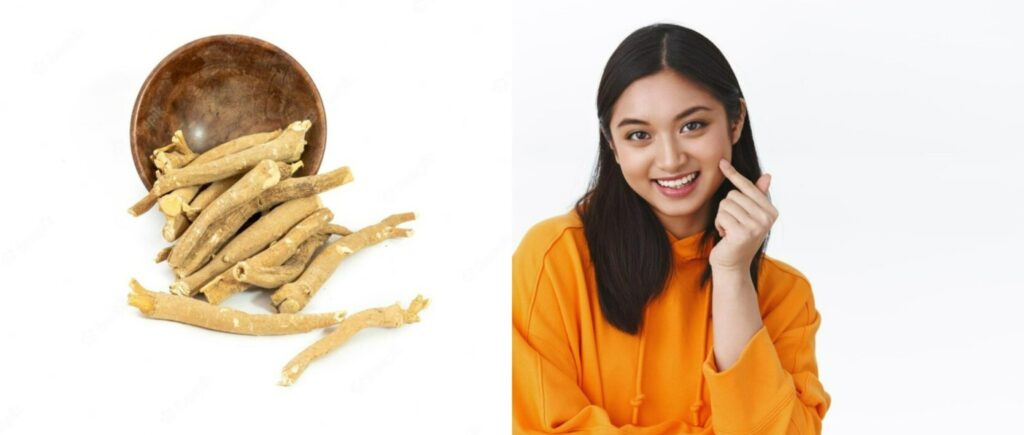Ashwagandha has been gaining popularity as a natural remedy for various health conditions, from anxiety and depression to inflammation and cancer. But with all the potential benefits of this ancient herb, some people wonder if there’s a catch. Can Ashwagandha cause acne?
Before you start panicking and canceling your ashwagandha supplements, let’s examine this question closely. The truth is, like many things in life, the answer isn’t black and white. While some evidence suggests that Ashwagandha may contribute to acne development, it’s not guaranteed that everyone who uses it will experience breakouts.
So, what’s the deal with Ashwagandha and acne? In this article, we’ll explore the connection between these two unlikely bedfellows and determine if Ashwagandha is a friend or foe to your skin. From the science behind acne formation to the potential mechanisms of Ashwagandha’s effects on the body, we’ll give you the lowdown on everything you need to know. So, buckle up and get ready to dive into Ashwagandha and acne!
What is Ashwagandha?

Ashwagandha is a small shrub that belongs to the nightshade family. It’s native to India, the Middle East, and some parts of Africa. The name “ashwagandha” comes from Sanskrit and means “smell of horse” because its roots have a distinct horsey aroma—other terms, including Indian ginseng, winter cherry, and poison gooseberry, known as Ashwagandha.
Ashwagandha has been used in Ayurvedic medicine for thousands of years to treat various health conditions. The root of the plant is the part typically used in traditional medicine, and it’s believed to have a wide range of therapeutic properties.
History Of Use And Benefits Of Ashwagandha
Ashwagandha has a long history of use in Ayurvedic medicine. It’s been used to treat everything from anxiety and depression to fertility problems and arthritis. Ashwagandha is believed to have adaptogenic properties, which means it helps the body to cope with stress and promotes overall well-being.
In recent years, Ashwagandha has gained popularity as a natural remedy for various health conditions in the Western world. Some studies have suggested that Ashwagandha may have anti-inflammatory and anti-cancer properties, making it a potentially helpful treatment for certain diseases.
Ashwagandha In Modern Medicine And Alternative Treatments
While Ashwagandha is still widely used in traditional medicine, it’s also gaining recognition in modern medicine and alternative treatments. Some research has suggested that Ashwagandha may effectively reduce stress and anxiety, improve cognitive function, and even boost fertility. It’s also been used to help manage the side effects of chemotherapy and radiation in cancer patients.
In addition to its potential health benefits, Ashwagandha is a popular ingredient in many natural beauty products. It’s believed to have antioxidant properties that can help protect the skin from damage and premature aging.
Overall, Ashwagandha is a versatile herb used for thousands of years to promote health and well-being. While more research is needed to fully understand its potential benefits and side effects, it’s clear that Ashwagandha has much to offer for those seeking natural remedies.
Definition And Types Of Acne

Acne, also known as pimples, zits, or the dreaded “pizza face,” is a common skin condition that affects people of all ages. The formation of pimples, blackheads, and whiteheads on the skin characterizes it. There are several different types of acne, including:
- Comedonal acne: This type of acne is characterized by the formation of blackheads and whiteheads.
- Inflammatory acne: This type of acne is characterized by red, swollen, and painful pimples.
- Cystic acne: This type of acne is characterized by large, painful cysts that can leave scars.
Causes Of Acne
Several different factors can contribute to the development of acne. Some of the most common causes include:
- Hormonal changes: Fluctuations in hormone levels, particularly during puberty, can trigger the development of acne.
- Excess oil production: When the sebaceous glands in the skin produce too much oil, it can lead to clogged pores and the development of acne.
- Bacteria: Propionibacterium acnes, present on everyone’s skin, can multiply and cause acne in some people.
- Genetics: Some people are more prone to developing acne because of their genetic makeup.
How Acne Develops On The Skin
Acne develops when hair follicles in the skin become clogged with oil and dead skin cells. When this happens, the follicle becomes inflamed, and a pimple forms. Blackheads and whiteheads form when the clogged pore is closed or open, respectively.
Now that we’ve covered acne basics, let’s dive into the connection between Ashwagandha and acne. Could this ancient herb be the culprit behind your pesky pimples? Keep reading to find out!
How Ashwagandha And Acne Are Connected?

Explanation Of How Ashwagandha Can Cause Acne
While Ashwagandha is known for its numerous health benefits, including reducing stress and anxiety, improving brain function, and boosting immunity, evidence suggests it may also cause acne. One theory is that Ashwagandha can increase testosterone levels in the body, which can lead to the development of acne. Another idea is that Ashwagandha may increase sebum production, the oily substance that can clog pores and cause acne.
Scientific Research On The Relationship Between Ashwagandha And Acne
A few studies have been conducted on the relationship between Ashwagandha and acne, but the results have not been conclusive. Some studies have shown that Ashwagandha may increase testosterone levels in the body, while others have found no such effect. Similarly, some studies have shown that Ashwagandha may increase sebum production, while others have found no significant difference.
Studies That Support Or Refute The Idea That Ashwagandha Causes Acne
One study conducted on male participants found that taking ashwagandha supplements for 90 days increased testosterone levels, which could contribute to the development of acne. However, another survey of female participants found no significant changes in testosterone levels after taking ashwagandha supplements for eight weeks.
While there is no definitive answer on whether Ashwagandha causes acne, it’s essential to remember that everyone’s body is different. If you’ve noticed a correlation between taking ashwagandha supplements and the development of acne, consider reducing your intake or discontinuing use altogether.
How Does Ashwagandha Cause Acne?
Explanation Of The Biological Mechanisms That Cause Acne Due To Ashwagandha Use
The exact biological mechanisms that cause ashwagandha-induced acne are not fully understood, but one theory is that the herb can disrupt the delicate balance of hormones in the body. This can lead to an increase in the production of sebum, which can clog pores and lead to acne.
Discussion Of The Role Of Hormones And Stress In Acne Development
Hormones and stress can both play a significant role in the development of acne. When we’re stressed, our bodies produce a hormone called cortisol, which can increase sebum production. Similarly, certain hormones, like testosterone, can also contribute to the development of acne.
Explanation Of How Ashwagandha Can Interfere With Hormonal Balance And Increase Stress Levels
Ashwagandha has been shown to impact the levels of various hormones, including cortisol and testosterone. Some studies have found that Ashwagandha can increase cortisol levels, which may contribute to the development of acne. Additionally, Ashwagandha has been shown to impact the thyroid gland, which is crucial in regulating hormones.
Moreover, stress can also be a factor in acne development, and Ashwagandha is known for its stress-reducing properties. However, when taken in excess, Ashwagandha can increase stress levels, increasing cortisol production and potentially exacerbating acne.
While the connection between Ashwagandha and acne is not fully understood, knowing the potential side effects of any supplement or herb you’re considering is essential. If you’re experiencing acne or other adverse effects after taking Ashwagandha, it may be worth talking to a healthcare professional to determine if it’s right for you.
Discussion Of The Demographic And Health Factors That Increase The Risk Of Acne Due To Ashwagandha Use
While anyone can experience acne as a side effect of ashwagandha use, some demographic and health factors may increase the risk. For example, individuals with a history of acne may be more susceptible to developing it again while taking Ashwagandha. Those with hormonal imbalances or thyroid issues may also be at a higher risk.
Explanation Of Why Some People May Be More Sensitive To Ashwagandha’s Effects On The Skin
It’s unclear why some people may be more sensitive to Ashwagandha’s effects on the skin. However, genetics, lifestyle factors, and other health conditions may all play a role. For example, those with a family history of acne or a diet high in processed foods and sugar may be more likely to experience acne as a side effect of ashwagandha use.
It’s important to note that while ashwagandha-induced acne is a potential side effect, not everyone will experience it. If you’re considering taking Ashwagandha and are concerned about the risk of acne or other side effects, it’s always best to speak with a healthcare professional first.
Discussion Of The Common Signs And Symptoms Of Acne Caused By Ashwagandha
Ashwagandha-induced acne can present in various ways, from tiny whiteheads to painful cysts. Some of the most common signs and symptoms include:
- Redness and inflammation around the affected area
- Blackheads or whiteheads
- Painful, pus-filled bumps or cysts
- Scarring or dark spots on the skin after the acne clears up
Explanation Of How To Identify Ashwagandha-Induced Acne From Other Types Of Acne
If you’ve tried these strategies and are still experiencing acne due to ashwagandha use, it may be worth exploring alternative supplements or treatments. Some options include:
- Holy basil is another adaptogenic herb that may provide similar benefits to Ashwagandha without the risk of acne.
- Probiotics can help support gut health and reduce inflammation in the body.
- Prescription acne medications, such as retinoids or antibiotics, can be effective for more severe cases of acne.
Treatment For Ashwagandha-Induced Acne
- Use a gentle cleanser: Choose a mild, fragrance-free cleanser to remove dirt and oil from your skin without aggravating acne. Avoid scrubbing your skin too hard or using hot water, as these can cause further irritation.
- Apply topical treatments: Over-the-counter acne creams or gels containing ingredients like benzoyl peroxide or salicylic acid can help treat mild to moderate acne. Prescription-strength topical treatments like retinoids or antibiotics may be recommended for more severe acne.
- Consider oral medications: In some cases, oral medications such as antibiotics or hormonal treatments may be prescribed by a dermatologist to help clear up acne caused by ashwagandha use.
- Try natural remedies: Some natural remedies, such as tea tree oil, aloe vera, or green tea, may also treat acne. However, talking to a healthcare provider before using any new natural remedy is essential, as it may not be safe or effective for everyone.
- Practice good skincare habits: Besides using acne-specific treatments, practicing good skincare habits can help prevent and treat acne caused by ashwagandha use. This includes washing your face twice daily, avoiding touching your face, and using non-comedogenic moisturizers and makeup products.
- Give it time: It can take several weeks or even months to see significant improvement in acne, so be patient and consistent with your treatment plan. Talk to a healthcare provider or dermatologist about other treatment options if your acne doesn’t improve or worsen.
Frequently Asked Questions (FAQs)
Ans: No conclusive evidence suggests that ashwagandha causes hormonal acne. Some studies have shown that ashwagandha may help to reduce acne by reducing inflammation and regulating hormones. However, as with any supplement, you must talk to your healthcare provider before taking ashwagandha to ensure it’s safe and appropriate.
Ans: Yes, ashwagandha can cause sleepiness in some people. Ashwagandha is known to have a calming effect on the body and may help reduce stress and anxiety, contributing to better sleep. However, if you experience excessive sleepiness or drowsiness after taking ashwagandha, you should speak with your healthcare provider to make sure it’s safe for you to continue taking it.
Ans: No scientific evidence suggests that ashwagandha causes hair loss. Some studies have shown that ashwagandha may promote hair growth by reducing inflammation and stress, which can contribute to hair loss. However, if you are experiencing hair loss, you must consult your healthcare provider to determine the underlying cause and appropriate treatment options.
Ans While ashwagandha is often used to help reduce symptoms of anxiety and stress, there is no evidence to suggest that it causes depression. Some studies have suggested that ashwagandha may help to improve symptoms of depression by reducing stress and improving mood. However, if you are experiencing symptoms of depression, it’s essential to speak with your healthcare provider to determine the underlying cause and appropriate treatment options.
Ans Although ashwagandha is often used to help reduce anxiety symptoms, in some rare cases, it can cause anxiety or nervousness in some people, especially if taken in high doses. However, for most people, ashwagandha is generally considered safe and well-tolerated, with few side effects. If you experience any unusual or concerning symptoms after taking ashwagandha, you must speak with your healthcare provider to determine if it’s safe to continue.
Conclusion:
Ashwagandha is a powerful herb used for centuries to treat various health conditions. While it has many benefits, it can also cause acne in some individuals. Scientific research and studies have shown that Ashwagandha can interfere with hormonal balance and increase stress levels, contributing to acne development.
If you are considering using Ashwagandha for its benefits, it is essential to be aware of the potential risk of acne and take steps to prevent it. This includes maintaining a healthy lifestyle, avoiding excessive stress, and monitoring your skin for any signs of acne.
Read More:


